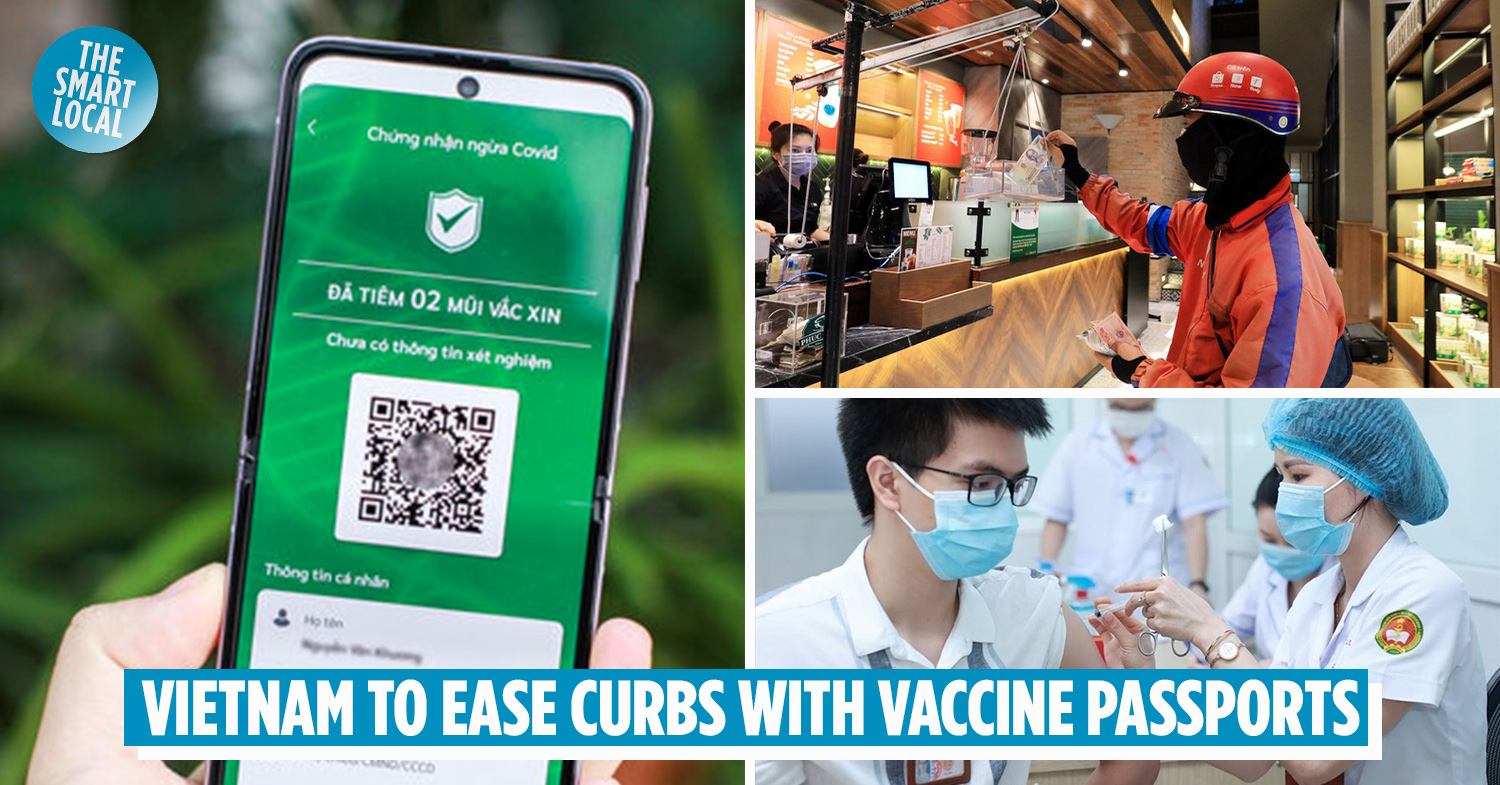Vietnam to ease into the new normal with digital health pass
The sweeping spread of Covid-19 in Vietnam’s largely unvaccinated population has choked the economy and put many people’s lives at risk. To protect lives, authorities and medical forces have been going into overdrive to get as many people inoculated as possible.
To help the economy stay afloat, city leaders have also come up with plans to resume business activities gradually and safely. Everyone’s life will resume normalcy one day, but it will be a new normal kind of life and you’ll need a digital health pass to live in it.
Here’s everything you need to know about Vietnam’s action plan for a progressive reopening.
Improved vaccination rates, decline in total deaths, and reopening of shops
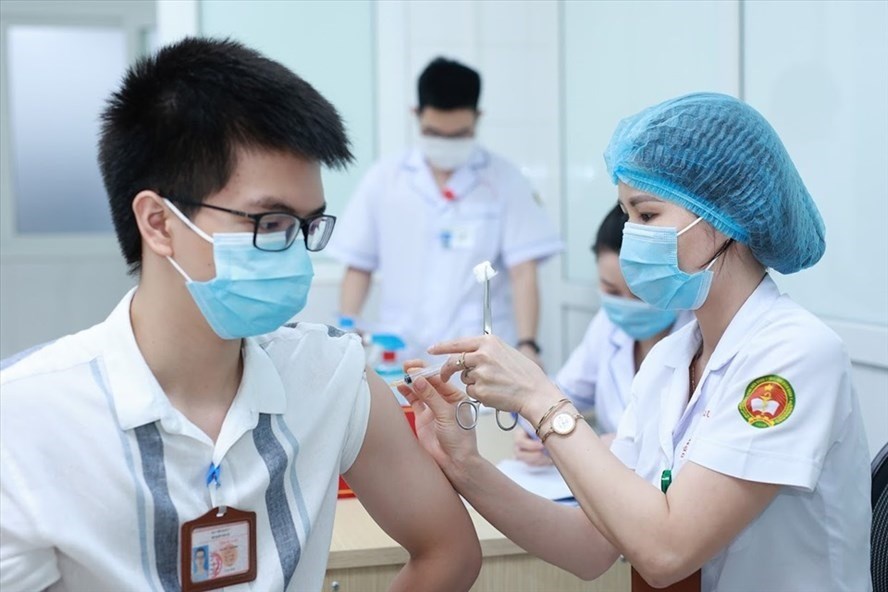
Image credit: Lao Động
Over the past few days, we’ve received some good news and witnessed optimistic signs in the country’s battle against Covid-19.
Our vaccination rates, which play a critical role in the reopening of our economy, have achieved considerable progress.
As of 13th September, over 29.3 million vaccine doses had been administered, according to the Ministry of Health.
In Ho Chi Minh City (HCMC), over 90% between the ages of 18 and 65 have gotten their first shots, and over 1 million city residents have been inoculated with the second dose. What’s more, the death toll in this Covid-19-stricken city is also falling, according to Người Lao Động.
On 22nd August, the total death count in HCMC peaked at 340. On 7th September, the death toll went down to 268 and on 12nd September, the total deaths numbered 200.
According to Dr Lê Quốc Hùng at Chợ Rẫy Hospital, the decline in death rates can be attributed to increased vaccinations, as we’re seeing more people getting vaccinated with their first dose.
“Besides, we have changed our strategy from treating only critically ill patients to paying more attention to patients with mild symptoms. The aim is to make sure that their conditions don’t worsen, and thus reduce the burden on our medical force. This is why the death rates have been going down despite a daily hike in new cases,” Dr Lê Quốc Hùng told Người Lao Động.
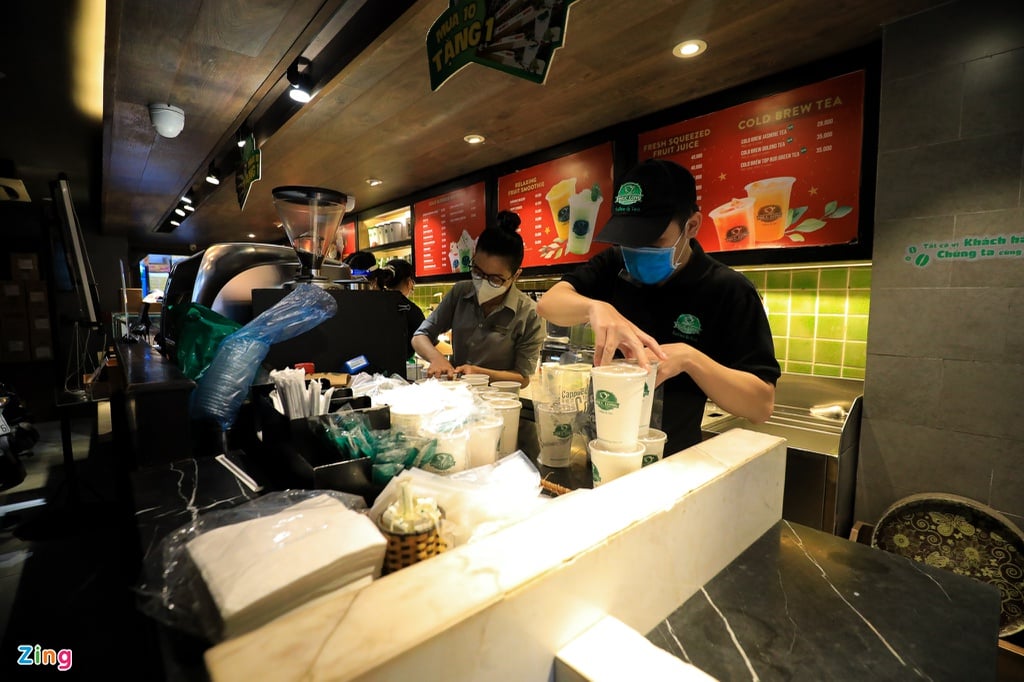
Saigon residents are finally able to order from coffee shops such as Phúc Long again
Image credit: Zing News
Many grocery stores and F&B establishments have also received the nod to reopen for takeaway. At the same time, delivery riders are also going into overdrive to cater to the shopping demands of local residents.
Starting from 16th September, riders can travel across districts to deliver orders, a clear indication that the city is on track to easing restrictions progressively.
Vietnam to reopen in three phases
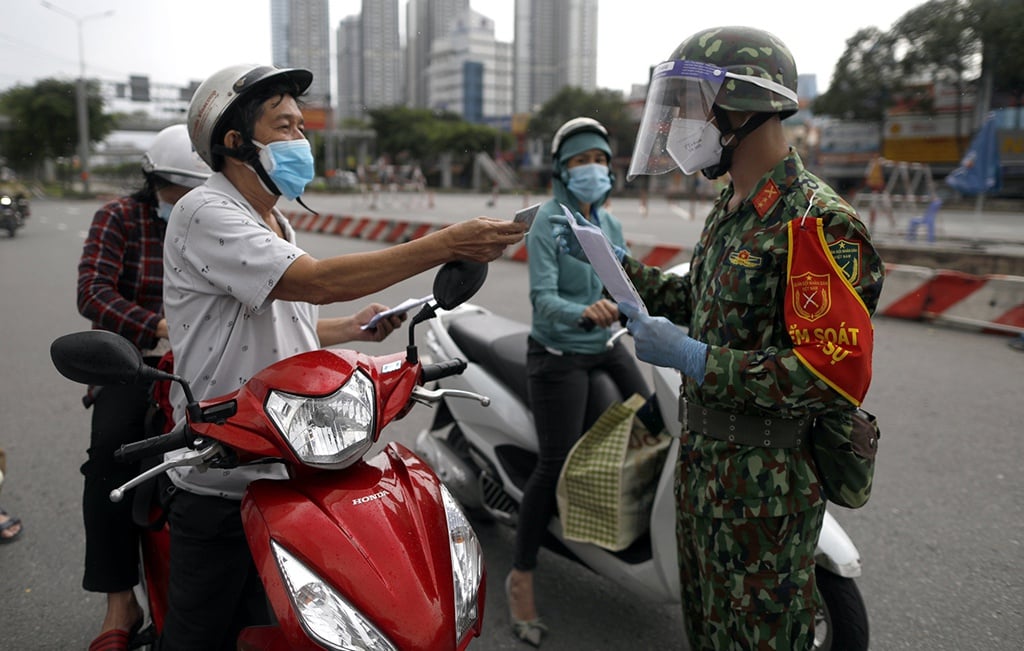
Image credit: Thanh Niên
While tight movement measures will remain in place to reduce the spread of Covid-19 after 15th September, HCMC leaders have announced an action plan for a progressive reopening.
In a briefing with local business associations on 10th September, city leaders said that Vietnam’s largest city will reopen in three phases, according to Thanh Niên.
The first phase, from 16th September until 31st October, will work as a pilot period. In lower-risk areas such as District 7 and Củ Chi, essential businesses with fully vaccinated staff can resume operations.
If everything goes as planned, we can move on to phase two, which takes place from 31st October until 15th January 2022.
During this phase, F&B establishments can open for dining in and outdoor sports facilities can also resume operations. One venue shall not take in more than 20 people at any given time and everyone must be fully vaccinated.
If everything remains under control, the city can proceed to phase 3, which will take place after 15th January. During this phase, all businesses can resume operations. Everyone who goes to entertainment hubs or massage parlours must be fully vaccinated.
Since being fully vaccinated has become the precondition for returning to a normal life, how exactly can we prove that we’re vaccinated?
Vaccination status will play a vital role in everyone’s life
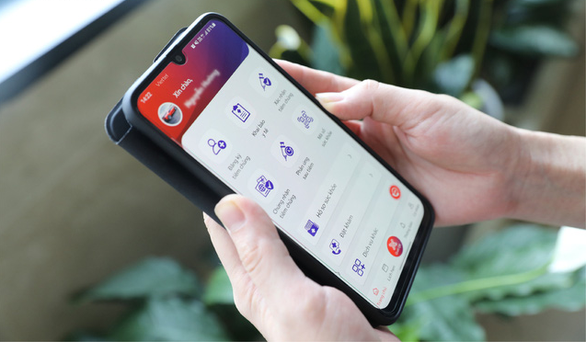
Image credit: Tuổi Trẻ
In the near future, according to Thanh Niên, HCMC will require proof of vaccination for people to enter public venues or check in at workplaces.
The city will develop an integrated mobile app that provides a scannable QR code for entry at different businesses, to make a health declaration, record our Covid-19 tests, and for vaccination registration.
Depending on the vaccination status of each and every individual, the QR code will display a matching color. For example, the QR code will go green if a person has received two shots and yellow for those who have received one shot.
Those who don’t use smartphones can apply for a verification serial number or have their QR code printed onto a physical card.
As ideal as this idea sounds, there are still certain obstacles to overcome.
Technological headaches must be resolved
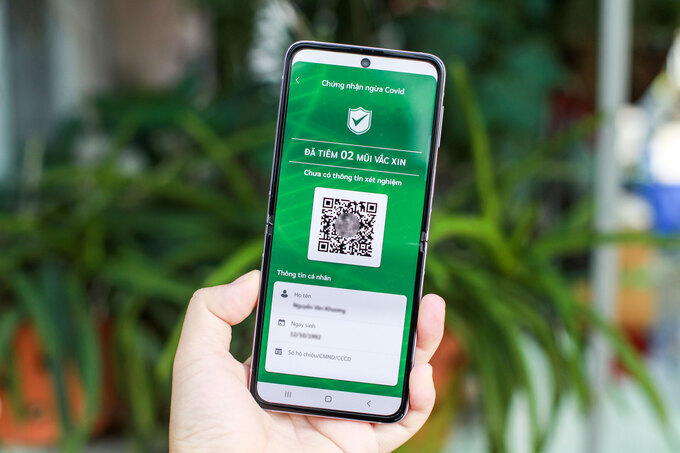
Green QR code to verify full vaccination status
Image credit: VNExpress
For the past couple of days, millions of people have downloaded Sổ Khai Báo Sức Khỏe Điện Tử, a vaccine passport app, to sign up and check their digital Covid-19 credentials.
While many fully vaccinated app users have received green ticks to verify their statuses, many haven’t. According to Thanh Niên, some people have reported the disappearances of their verification statuses overnight, while some people’s statuses are displayed as yellow even when they’re fully vaccinated.
In response to these feedbacks, Mr Từ Lương from the Ministry of Information and Communications (MIC) said that they are working with IT force and the Ministry of Health to develop a standard and controlled format of handling the medical database and digital credentials. Also, app users who encounter problems can send their feedback on the website Tiêm Chủng Covid-19, Tuổi Trẻ reported.
On 14th September, Tuổi Trẻ reported that the MIC announced the release of an integrated vaccine verification app called Y Tế HCM. This app will be piloted in District 7, Củ Chi, Cần Giờ, and industrial parks in the area. If you live or work in any of these areas, you should download this app and see how it goes.
Because a vaccination passport app will play a critical role in everyone’s life in the future, it’s imperative that every resident’s vaccination record is loaded accurately and in a timely manner into one integrated app.
Vaccine passport apps pave the way for a new normal in Vietnam
The sweeping impact of the Covid-19 pandemic has triggered a need to transform outdated verification papers into digital credentials. In the foreseeable future, you’ll need to carry your health information with you as you go out or travel.
Vaccination passport apps will make things easier and less incumbent for everyone, but they need to be standardized to be useful. Hopefully, authorities can resolve the technical headaches surrounding the verification apps soon as more people are getting vaccinated and businesses are raring to reopen.
Meanwhile, let’s look on the bright side and rest assured that the city is on track to easing curbs. The greatest survival headache during this pandemic – food – has been resolved. Many people have been able to order groceries as well as bubble tea online straight from delivery shippers, and that’s also a landmark worth celebrating.
In the mean time, let’s stay tuned for more Covid-19 announcements from the government!
Also check out:
- A progressive transition into the new normal is Vietnam’s way out
- Ho Chi Minh City announces plans to reopen in September
- Covid-19 has touched every part of Vietnam except this place
- Basilica of Our Lady of La Vang: where the Virgin Mary appeared
- Hoài Khao Ancient Village: a picturesque town stuck in time
- 11 things that I’ll do when Saigon reopens
Cover image adapted from: Zing News and Lao Động
Enjoying The Smart Local Vietnam? Follow us on Facebook, Telegram, Instagram, and LinkedIn for more stories like this. If you have a story to share, email us at pressvn@thesmartlocal.com.
